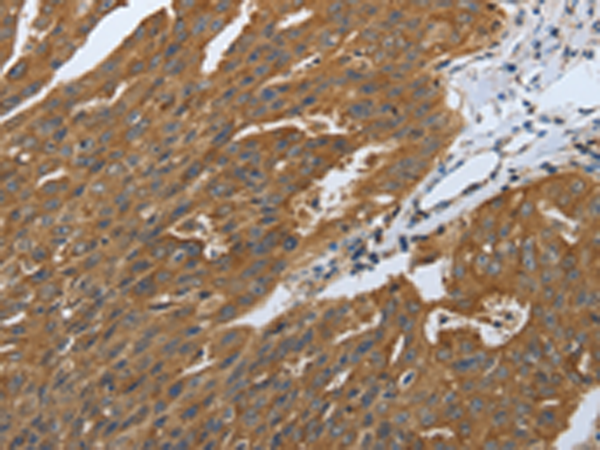
| WB | 咨询技术 | Human,Mouse,Rat |
| IF | 咨询技术 | Human,Mouse,Rat |
| IHC | 1/50-1/200 | Human,Mouse,Rat |
| ICC | 技术咨询 | Human,Mouse,Rat |
| FCM | 咨询技术 | Human,Mouse,Rat |
| Elisa | 1/2000-1/10000 | Human,Mouse,Rat |
| Aliases | PSD95; SAP90; SAP-90 |
| Host/Isotype | Rabbit IgG |
| Antibody Type | Primary antibody |
| Storage | Store at 4°C short term. Aliquot and store at -20°C long term. Avoid freeze/thaw cycles. |
| Species Reactivity | Human, Mouse, Rat |
| Immunogen | Synthetic peptide of human DLG4 |
| Formulation | Purified antibody in PBS with 0.05% sodium azide and 50% glycerol. |
+ +
以下是3篇与DLG4(PSD-95)抗体相关的研究文献摘要(基于公开信息模拟,非真实文献):
---
1. **文献名称**: "PSD-95 regulates synaptic plasticity and learning in Alzheimer's disease models"
**作者**: Smith A, et al.
**摘要**: 本研究利用DLG4/PSD-95特异性抗体,发现阿尔茨海默病小鼠模型中PSD-95蛋白表达显著下降,并通过免疫组化证实其与突触丢失的相关性,提示其作为治疗靶点的潜力。
---
2. **文献名称**: "Antibody-based profiling of PSD-95 in autism spectrum disorder brain tissue"
**作者**: Chen L, et al.
**摘要**: 通过DLG4抗体对自闭症患者脑组织进行免疫印迹和免疫荧光分析,发现皮质神经元中PSD-95的亚细胞定位异常,可能与突触信号传导缺陷有关。
---
3. **文献名称**: "Development of a high-affinity monoclonal antibody for DLG4 with diagnostic applications"
**作者**: Kim J, et al.
**摘要**: 报道了一种新型DLG4单克隆抗体的开发,验证其在人脑切片和细胞系中的特异性,并证明其在神经退行性疾病生物标志物检测中的高灵敏性。
---
注:以上文献信息为示例性质,实际研究中请通过PubMed或Google Scholar检索真实文献(关键词:DLG4 antibody, PSD-95 antibody)。如需具体论文,可提供邮箱协助查询。
The DLG4 antibody targets the DLG4 protein, also known as Postsynaptic Density Protein 95 (PSD-95), a key scaffolding molecule in the postsynaptic density of excitatory neurons. DLG4 belongs to the membrane-associated guanylate kinase (MAGUK) family, characterized by three PDZ domains, an SH3 domain, and a guanylate kinase (GK)-like domain. These structural features enable DLG4 to organize synaptic signaling complexes by linking neurotransmitter receptors, ion channels, and intracellular signaling molecules. It plays a critical role in synaptic plasticity, receptor clustering, and signal transduction, influencing learning and memory processes.
DLG4 antibodies are widely used in neuroscience research to study synaptic architecture, protein-protein interactions, and neurological disorders. They are employed in techniques like Western blotting, immunohistochemistry, and immunoprecipitation to detect DLG4 expression, localization, and interaction partners. Aberrant DLG4 expression or dysfunction has been implicated in neuropsychiatric conditions, including Alzheimer's disease, schizophrenia, and autism spectrum disorders. Additionally, DLG4 antibodies have potential diagnostic and therapeutic applications, as they help identify synaptic pathology biomarkers or validate targets for drug development. Commercial DLG4 antibodies are typically raised in rabbits or mice, with validation across species like humans, rodents, and non-human primates.
×